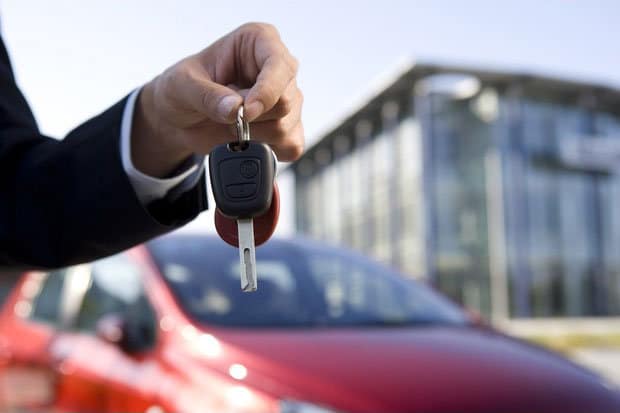Today most auto dealers or organizations cannot be trusted because their promises and guarantees are no longer kept. You should be very watchful and careful when deciding to buy a car from an auto dealer. Extra consciousness will be your guarantee for avoiding scams, In other cases the possibility that you might be defrauded and robbed of your hard-earned money will increase surely.
Recently, it is widely discussed that President Obama is taking serious steps to protect the car buyers against auto dealer fraud and abuse. He has imposed a strict regulations and it is more related to avoiding financial fraud during the car buying process. The regulations will protect consumers against exploitation.
Auto dealers disagree that they are mere intermediaries for financial institutions and banks that ultimately provide loans to auto buyers. The financial regulation by Obama is highly opposed by almost 18,000 car dealers. The more regulations added for auto/ car dealers will burden the consumers as their expenses will show a steep increase”.
California was the first state in the country to have passed an auto lemon law in 1982. It has helped many consumers against defective automobiles. California lemon law is a pioneering legislation and is one of the most powerful and consumer-friendly laws in the country. Those who purchased used cars in California were expected to be on their own even if the car had hidden defects and the seller knowingly hid the lethal facts about the car.
If you think that you have become a victim of this car dealer fraud you should first contact the car dealer and demand that they refund any amounts that you did not authorize. Also contact an experienced dealer fraud lawyer in your area, who will be able to consult and evaluate your case. File a complaint with the Better Business Bureau and make a complaint with the Department of Consumer Affairs.
Auto Dealer Fraud Overview
Purchasing an automobile is a major investment, which consumers should not take lightly. The purchase of a new vehicle requires extensive research before ever setting foot on an auto lot, while looking at and test-driving new cars, and most importantly, before signing a sales contract. Used cars require a considerable amount of due diligence into the condition of the vehicle and the terms of the sale. Any vehicle purchase requires a healthy amount of skepticism about the trustworthiness of the dealer. Financing all or part of the purchase price, when necessary, brings up a whole different set of concerns regarding consumer rights. Consumer protection statutes address many of these concerns, but consumers should also take steps to educate and protect themselves.
Auto Dealer Fraud Versus Defective Automobiles
Auto dealer fraud presents different legal issues than those involved in dangerous or defective vehicles and vehicles that do not meet the implied warranties of merchantability or fitness. Federal and state product liability laws and state lemon laws deal with automobiles that are not fit for sale to the public. Auto dealer fraud falls under the jurisdiction of laws prohibiting fraudulent or deceptive trade practices.
Types of Auto Dealer Fraud
Common forms of auto dealer fraud include:
- Inflating the total purchase price above the invoice or sticker price, such as by concealing options the consumer did not request, or by including other unapproved and undisclosed fees;
- Falsely stating that optional features are required;
- Advertising a vehicle for a certain price and then telling consumers that the advertised deal is no longer available and attempting to sell them the same vehicle at a higher price, often known as a “bait and switch” scheme;
- Undervaluing or underpaying for a consumer’s trade-in vehicle;
- Falsely representing a used vehicle, including one originally purchased from the dealership and then returned, as “new”;
- Representing that a new or used vehicle has features or options that it does not have;
- Claiming that a warranty offers protections that it does not offer, or falsely representing an extended service contract as an extended warranty;
- Failing to disclose past damage from an accident, flood, or fire in a used car sale;
- Misrepresenting the total mileage on a used vehicle through an odometer “rollback”;
- Withholding any other material information about a new or used vehicle;
- Misrepresenting a consumer’s credit score or eligibility for financing in order to get him or her to agree to a higher interest rate or other unfavorable terms;
- Falsely stating that a consumer who is leasing a vehicle will own the vehicle when he or she finishes making payments;
- Allowing a consumer to drive off the lot with a vehicle under the false belief that a loan application is pending and then having the consumer return to sign for a different, more expensive loan, known as “yo-yo financing”; and
- Backdating new financing documents to the original purchase date.
Consumers can take steps to protect themselves by resisting aggressive sales tactics, test-driving a vehicle before buying it, and demanding a full visual inspection of a vehicle. They should request a repair history for used vehicles and, if purchasing a used vehicle from an individual, ask to have a mechanic inspect it.
Consumer Protection Law
Consumer protection statutes dealing with issues like false advertising apply to many forms of auto dealer fraud. Some statutes and regulations may not apply, however. Auto sales are exempt from the three-day “cooling-off” rule, for example, with a few specific exceptions.
Used Car Rule
The Federal Trade Commission (FTC) is charged with enforcing the “Used Car Rule,” a federal regulation that requires used car dealers to disclose certain information to consumers. The rule generally prohibits false statements, material misrepresentations, and other unfair or deceptive practices in connection with the sale of used vehicles.
The rule prescribes a specific type of notice to be posted conspicuously in the window of any used vehicle offered for sale. The notice must:
- Provide the dealer’s name and contact information, along with the make, model, year, and vehicle identification number (VIN) of the vehicle;
- Briefly describe the terms of any express warranties on the vehicle, including the extent and duration of coverage, or state that no express warranties are offered;
- Indicate whether a manufacturer’s warranty remains in effect and for how long;
- Indicate whether the dealer disclaims any implied warranties or offers the vehicle for sale “as is”; and
- Identify any service contracts that are available for the vehicle.
Auto Financing Regulations
Many auto dealerships offer to assist consumers with financing a vehicle purchase through an in-house finance and insurance (F&I) department. These departments must abide by consumer privacy rules that protect credit scores and other personal financial information. Auto dealers obtained a specific exclusion from the jurisdiction of the recently-created Consumer Financial Protection Bureau (CFPB), under § 1029 of the Dodd-Frank Wall Street Reform and Consumer Protection Act. The CFPB is undertaking a review of the practices of other participants in auto financing, however, and this is having an impact on auto dealers and their F&I departments.
In auto sales when the dealer is responsible for obtaining financing, many sales contracts give the dealer the right to rescind the contract within 10 days. This means that the dealer can demand return of the vehicle to the dealership if it is unable to obtain financing. The dealer must provide the buyer with written notice, as indicated by the terms of the contract. These terms are hidden among the fine print. The buyer usually has no comparable right to rescind the sale.

















